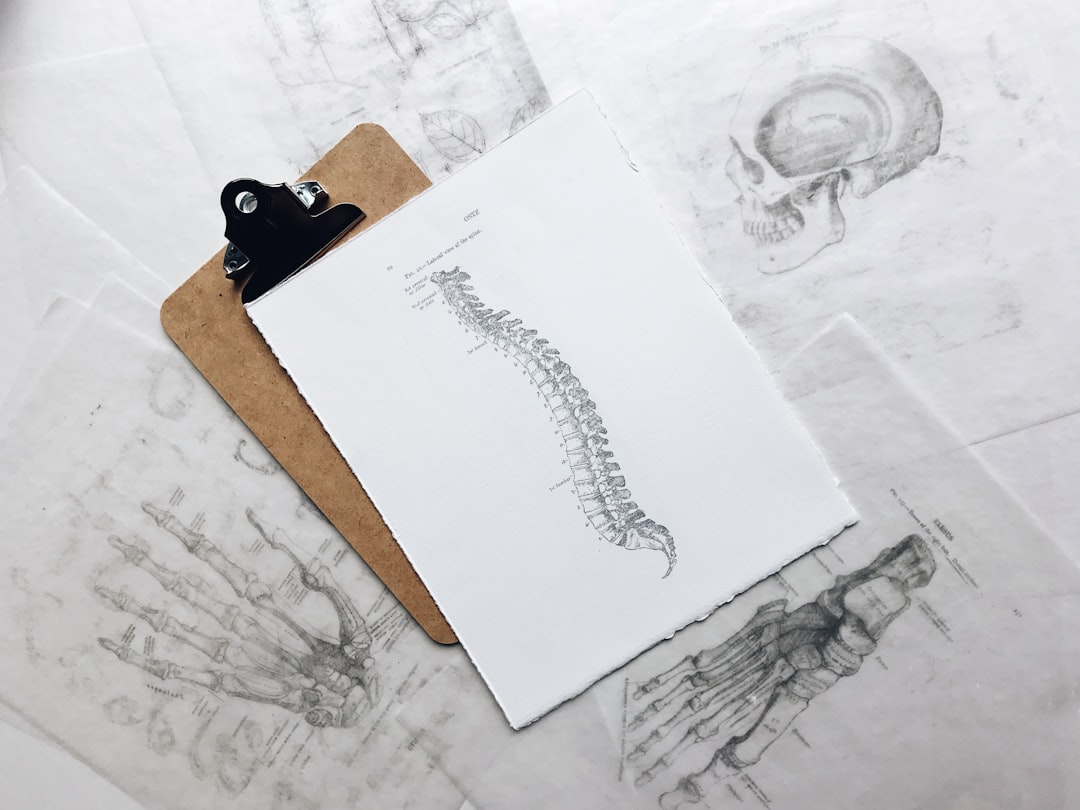Kidney stones
Learn about kidney stones, their symptoms, causes, and treatment options to manage and prevent this painful condition effectively.
Related Products
Kidney Stones: A Comprehensive Overview
Kidney stones, or nephrolithiasis, are a prevalent urological condition affecting millions worldwide. These small, hard mineral deposits form inside the kidneys due to an imbalance in urine composition, leading to substance crystallization.
Prevalence and Risk
- Approximately 1 in 500 individuals in the United States develop stones annually
- Lifetime risk: 1 in 8 men and 1 in 16 women
- Peak incidence: 40-60 years for men, 20-50 years for women
Types of Kidney Stones
- Calcium stones (65-70% of cases)
- Calcium oxalate (35-70%)
- Calcium phosphate (5-20%)
- Uric acid stones (10% of cases)
- Struvite stones (15% of cases)
- Cystine stones (rare)
Risk Factors
Non-Dietary Factors
- Family history (2.5 times increased risk)
- Medical conditions: chronic diarrhea, primary hyperparathyroidism, obesity, gout, diabetes
Dietary Factors
- High intake of animal protein, oxalate-rich foods, and salt
- Low calcium intake
- Inadequate hydration
Urinary Risk Factors
- Hypercalciuria (high urinary calcium)
- Hyperoxaluria (high urinary oxalate)
- Hyperuricosuria (high urinary uric acid)
- Hypocitrituria (low urinary citrate)
- Urinary tract infections
Diagnosis
- Physical examination
- Imaging tests: X-rays, CT scans, ultrasounds
- Laboratory analysis: urine and blood tests
Treatment
- Small stones: increased fluid intake and pain management
- Larger stones: shock wave lithotripsy or surgical procedures
Long-Term Health Implications
Kidney stone disease is associated with increased risks of:
- Chronic kidney disease
- End-stage renal failure
- Cardiovascular disease
- Diabetes
- Hypertension
Ongoing Research
Current areas of focus include:
- Stone formation mechanisms
- New treatment modalities
- Enhanced prevention strategies
- Gut microbiota's role in stone formation
- New imaging techniques for early detection
- Dietary interventions for recurrence prevention
In conclusion, kidney stones pose a significant health concern with complex underlying factors. Understanding the types, risk factors, and potential complications associated with kidney stones enables individuals and healthcare providers to implement effective prevention and management strategies, ultimately improving outcomes and quality of life for those affected by this condition.
- Kidney Stone Disease: Overview - UF Urology. (n.d.). Retrieved from https://urology.ufl.edu/patient-care/stone-disease/
- Renal Calculi, Nephrolithiasis - StatPearls - NCBI Bookshelf. (n.d.). Retrieved from https://www.ncbi.nlm.nih.gov/books/NBK442014/
- Kidney Stone Disease: An Update on Current Concepts - PMC - NCBI. (2018). Retrieved from https://www.ncbi.nlm.nih.gov/pmc/articles/PMC5817324/
- Kidney Stone Pathophysiology, Evaluation and Management: Core ... - American Journal of Kidney Diseases. (2023). Retrieved from https://www.ajkd.org/article/S0272-6386%2823%2900670-4/fulltext
- Kidney Stone Research - News-Medical. (n.d.). Retrieved from https://www.news-medical.net/health/Kidney-Stone-Research.aspx
🕓 Last Updated: 7/3/2024 3:52:16 AM
Kidney Stones: Symptoms, Types, and Treatment
Symptoms
Kidney stones (nephrolithiasis) can present with various symptoms, including:
Pain
- Severe pain in the back and side, below the ribs
- Pain radiating to the lower abdomen and groin
Urinary Symptoms
- Persistent urge to urinate
- Discomfort or pain during urination
- Difficulty urinating or passing small amounts of urine
Other Symptoms
- Hematuria (blood in urine)
- Nausea and vomiting
- Cloudy or foul-smelling urine
- Fever and chills (if infection is present)
Types of Kidney Stones
Calcium oxalate stones
- Most common type
- Form due to excess calcium or oxalate in urine
Uric acid stones
- Develop in consistently acidic urine
- Often associated with high animal protein diets
Struvite stones
- Associated with urinary tract infections
- Can grow rapidly
Cystine stones
- Rare, hereditary disorder
- Caused by excessive amino acid excretion
Treatment Approaches
Small Stones
- Pain management
- Increased fluid intake
- Over-the-counter pain relievers (e.g., ibuprofen, naproxen sodium)
Larger Stones or Severe Symptoms
- Shock wave lithotripsy
- Surgical interventions (ureteroscopy, percutaneous nephrolithotomy)
- Prescription medications (e.g., alpha blockers)
The severity of kidney stone experiences can vary significantly among individuals. Early symptom recognition and prompt medical attention are crucial for appropriate treatment and minimizing complications.
- Kidney stones - Symptoms and causes - Mayo Clinic. (2022). Retrieved from https://www.mayoclinic.org/diseases-conditions/kidney-stones/symptoms-causes/syc-20355755
- Kidney Stones: Causes, Symptoms, Diagnosis & Treatment. (2024). Retrieved from https://my.clevelandclinic.org/health/diseases/15604-kidney-stones
- Kidney Stones: Symptoms, Diagnosis & Treatment - Urology Care. (n.d.). Retrieved from https://www.urologyhealth.org/urology-a-z/k/kidney-stones
- Symptoms & Causes of Kidney Stones - NIDDK. (2017). Retrieved from https://www.niddk.nih.gov/health-information/urologic-diseases/kidney-stones/symptoms-causes
- Kidney stones - Symptoms, causes, types, and treatment. (n.d.). Retrieved from https://www.kidney.org/atoz/content/kidneystones
🕓 Last Updated: 7/3/2024 3:52:16 AM
Causes and Risk Factors of Kidney Stones
Kidney stones develop due to a complex interplay of various factors. While no single definitive cause exists in most cases, several key factors significantly increase the risk of stone formation.
Primary Contributors
Dehydration
- Leads to concentrated urine
- Creates an environment conducive to mineral crystallization
Dietary Habits
- High animal protein consumption
- Oxalate-rich foods (e.g., spinach, rhubarb, nuts)
- Excessive salt intake
Medical Conditions
- Gout
- Hyperparathyroidism
- Inflammatory bowel diseases (e.g., Crohn's disease)
Genetic Factors
- Family history
- Specific genetic disorders (e.g., cystinuria)
Medications
- Diuretics
- Calcium-based antacids (when overused)
- Some antibiotics
Other Risk Factors
- Urinary tract infections
- Obesity
- Weight loss surgery
- Diabetes
- High blood pressure
Types of Kidney Stones and Their Causes
Calcium Oxalate Stones
- High oxalate diets
- Low calcium intake
- Certain metabolic disorders
Uric Acid Stones
- Consistently acidic urine
- High animal protein diets
- Conditions like gout
Struvite Stones
- Urinary tract infections
- Rapid growth potential
Cystine Stones
- Rare, hereditary disorder (cystinuria)
- Excessive amino acid excretion
Understanding these causes and risk factors is crucial for prevention and management of kidney stones. Addressing modifiable risk factors like diet and hydration can prevent many cases. For those with underlying medical conditions or genetic predispositions, regular monitoring and targeted interventions can help reduce the risk of recurrent stone formation.
- Kidney stones - Symptoms and causes - Mayo Clinic. (2022). Retrieved from https://www.mayoclinic.org/diseases-conditions/kidney-stones/symptoms-causes/syc-20355755
- Kidney Stones: Causes, Symptoms, Diagnosis & Treatment. (2024). Retrieved from https://my.clevelandclinic.org/health/diseases/15604-kidney-stones
- Kidney Stones: Causes, Symptoms, and Treatment - WebMD. (2023). Retrieved from https://www.webmd.com/kidney-stones/kidney-stone-causes
- What Causes Kidney Stones? > News > Yale Medicine. (2023). Retrieved from https://www.yalemedicine.org/news/what-causes-kidney-stones
- Kidney stones - Symptoms, causes, types, and treatment. (n.d.). Retrieved from https://www.kidney.org/atoz/content/kidneystones
🕓 Last Updated: 7/3/2024 3:52:16 AM
Preventing Kidney Stones: A Comprehensive Approach
Preventing kidney stones involves a multifaceted strategy combining dietary modifications, lifestyle changes, and, in some cases, medical interventions. The key focus is on reducing stone-forming substances in urine and increasing inhibitory factors.
Key Prevention Strategies
Hydration
- Drink at least 2 liters of water daily
- Aim for 2.5 liters of light-colored urine output daily
- Increase intake in hot climates or during frequent exercise
Dietary Modifications
- Balanced diet rich in fruits, vegetables, and whole grains
- Limit animal protein intake
- Restrict sodium intake:
- 2,300 mg daily for general population
- 1,500 mg daily for those with kidney stone history
- For calcium oxalate stones:
- Limit oxalate-rich foods
- Maintain adequate calcium intake
Lifestyle Changes
- Maintain a healthy weight
- Regular exercise
- Stay hydrated during and after physical activities
Medical Management
- Manage underlying conditions (e.g., gout, hyperparathyroidism, inflammatory bowel disease)
- Potential supplements or medications:
- Potassium citrate
- Thiazide diuretics
- Allopurinol (for uric acid stones)
Tailored Approaches
- Uric acid stones: Consider urine alkalinization
- Calcium phosphate stones: Avoid excessive alkalinization
Regular Monitoring
- Follow up with healthcare providers
- Monitor urine composition
- Adjust prevention strategies as needed
Implementing these strategies can significantly reduce the risk of kidney stone formation and recurrence. It's essential to consult with a healthcare professional to develop a personalized prevention plan, especially for those with a history of kidney stones or other risk factors. With proper management and lifestyle modifications, many cases of kidney stones can be prevented, improving quality of life and reducing the risk of associated complications.
- How to prevent kidney stones - Harvard Health. (2013). Retrieved from https://www.health.harvard.edu/blog/5-steps-for-preventing-kidney-stones-201310046721
- Preventing Kidney Stones | NYU Langone Health. (n.d.). Retrieved from https://nyulangone.org/conditions/kidney-stones/prevention
- Kidney Stone Prevention - PMC - NCBI. (n.d.). Retrieved from https://www.ncbi.nlm.nih.gov/pmc/articles/PMC10201681/
- Six Easy Ways to Prevent Kidney Stones - National Kidney Foundation. (n.d.). Retrieved from https://www.kidney.org/atoz/content/kidneystones_prevent
- Kidney stones: Learn More – Preventing kidney stones - NCBI. (2023). Retrieved from https://www.ncbi.nlm.nih.gov/books/NBK348941/
🕓 Last Updated: 7/3/2024 3:52:16 AM
Home Remedies for Kidney Stones
While home remedies can provide symptom relief and potentially aid in prevention, they should be used in conjunction with professional medical advice. Here's an overview of popular home remedies:
Key Home Remedies
Hydration
- Drink at least 2 liters of water daily
- Helps flush out minerals and dilute urine
Citrus Fruits
- High in citrate, especially lemons
- May help break down calcium deposits and slow stone growth
Apple Cider Vinegar
- Contains citric acid
- Potential to dissolve calcium deposits (more research needed)
Weight Management
- Maintain a healthy weight through balanced nutrition and regular exercise
Dietary Considerations
- Limit carbonated, caffeinated, and alcoholic beverages
- Reduce intake of foods high in sugar, salt, and fat
- For calcium oxalate stones: consume calcium-rich foods to bind oxalates in the digestive tract
Promising Natural Substances
- Wheatgrass extract: May inhibit crystal growth
- Dandelion root: May increase urine output
- Celery: Contains potassium and antioxidants
- Pomegranate juice, raspberry fruit, and green tea: Potential symptom relief and prevention
- Coconut water: Hydrating properties
Less Common Remedies
- Horse gram
- Bay leaves
- Common fig
Important Note: Consult a healthcare professional before incorporating any home remedy into a kidney stone management plan, especially for those with underlying medical conditions or taking regular medications.
In conclusion, while home remedies can offer relief and potentially aid in prevention, they should be part of a comprehensive approach to kidney stone management that includes proper medical supervision, dietary adjustments, and lifestyle modifications.
- Home Remedies for Kidney Stones: Alleviating Symptoms and Prevention. (n.d.). Retrieved from https://www.medicalnewstoday.com/articles/319418
- 8 Natural Remedies to Fight Kidney Stones at Home. (2023). Retrieved from https://www.healthline.com/nutrition/kidney-stone-remedies
- 10 Home Remedies for Kidney Stones. (n.d.). Retrieved from https://www.healthline.com/health/kidney-health/home-remedies-for-kidney-stones
- Passing Kidney Stones Fast: Natural Remedies and Prevention. (n.d.). Retrieved from https://sesamecare.com/blog/how-to-pass-kidney-stones-fast
- Natural Home Remedies For Kidney Stone By Dr. Siddharth Gupta. (2024). Retrieved from https://pharmeasy.in/blog/home-remedies-for-kidney-stone-by-dr-siddharth-gupta/
🕓 Last Updated: 7/3/2024 3:52:16 AM
Alternative Medicine Approaches for Kidney Stones
Alternative medicine offers complementary strategies that may help manage symptoms and potentially reduce the risk of kidney stone formation. These methods should not replace conventional treatments but can be part of a holistic management approach.
Key Alternative Approaches
Acupuncture
- May alleviate kidney stone-associated pain
- Potential to reduce stress
- More research needed to fully understand effectiveness
Herbal Remedies
- Common herbs: dandelion, basil, celery
- May increase urine output and reduce inflammation
- Consult healthcare provider before use due to potential interactions
Supplements
- Magnesium and potassium supplements
- May help regulate electrolyte balance
- Use should be guided by a healthcare professional
Probiotics
- Potential role in kidney stone prevention
- May influence mineral metabolism and oxalate absorption
- Research still emerging
Dietary Modifications
- Emphasis on fruits, vegetables, and whole grains
- Reduce oxalate intake for calcium oxalate stones
- Increase citrate consumption through citrus fruits
Epsom Salt Baths
- May reduce inflammation and relieve pain
- Limited scientific evidence specifically for kidney stones
Yoga and Meditation
- Potential benefits in stress management
- May contribute to reduced kidney stone formation risk
Important Considerations
- Scientific evidence varies for these alternative approaches
- Many methods based on traditional uses and anecdotal evidence
- Consult with a healthcare provider before incorporating any alternative strategies
- Not a replacement for medical advice or prescribed treatments
In conclusion, alternative medicine offers approaches that may complement conventional kidney stone treatments. As research evolves, integrating evidence-based alternative approaches with conventional care may offer patients a more holistic approach to kidney stone management. Always consult with a healthcare professional before starting any new treatment regimen.
- 10 Home Remedies for Kidney Stones - Healthline. (n.d.). Retrieved from https://www.healthline.com/health/kidney-health/home-remedies-for-kidney-stones
- An Integrative Medicine Approach to Kidney Stones - Rupa Health. (2023). Retrieved from https://www.rupahealth.com/post/an-integrative-medicine-approach-to-kidney-stones
- 8 Natural Remedies to Fight Kidney Stones at Home - Healthline. (2023). Retrieved from https://www.healthline.com/nutrition/kidney-stone-remedies
- Kidney Stone Prevention: Is There a Role for Complementary and Alternative Medicine? - PubMed. (2023). Retrieved from https://pubmed.ncbi.nlm.nih.gov/36839235/
🕓 Last Updated: 7/3/2024 3:52:16 AM
Related Products
The views and opinions expressed on Nutritionaly.com are for informational purposes only and do not necessarily reflect the official policies or positions of Nutritionaly.com. While we strive to provide valuable insights and educational content, the information on this website is not intended to be taken as professional medical advice or to diagnose, treat, or prevent any health condition. Always consult with a qualified healthcare provider before making any health-related decisions or starting any new treatment. Any reliance placed on such information is strictly at the reader’s own risk. Nutritionaly.com is not liable for the accuracy of information from third parties featured on our website. We do not endorse these external opinions, products, or services. Content may become outdated, and images are for illustrative purposes only.










